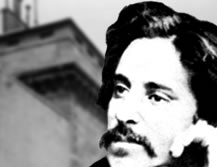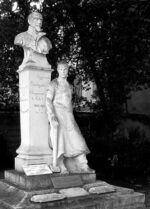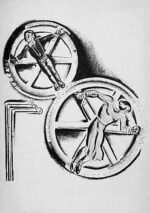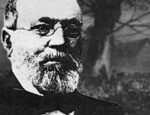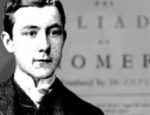Description
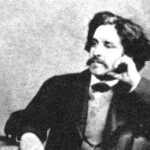 Admire the passion of Paul Lafargue (1842-1911), who used classical sources to argue that winning the ‘right’ to sell their labour was no victory for the lower classes. He wrote Le droit à la paresse (The Right to Idleness, 1883), in its time the second most widely read Marxist text after The Communist Manifesto, while incarcerated in the notorious Sainte-Pélagie prison for producing revolutionary propaganda.
Admire the passion of Paul Lafargue (1842-1911), who used classical sources to argue that winning the ‘right’ to sell their labour was no victory for the lower classes. He wrote Le droit à la paresse (The Right to Idleness, 1883), in its time the second most widely read Marxist text after The Communist Manifesto, while incarcerated in the notorious Sainte-Pélagie prison for producing revolutionary propaganda.
Lafargue was born in Cuba, of mixed African, Amerindian, Jewish and French heritage, which he always claimed made him a radical from birth. He married Karl Marx’s daughter Laura. Until the couple’s suicide pact on the threshold of old age, they spent their lives as activists, mainly in France and Spain.
A brilliant writer of caustic wit, at the anarchist end of the Marxist spectrum, Lafargue relentlessly criticised the work ethic, argued that women workers should be granted maternity leave, and wittily ran a campaign urging people to vote for a popular race horse in order to make fun of the electoral system.
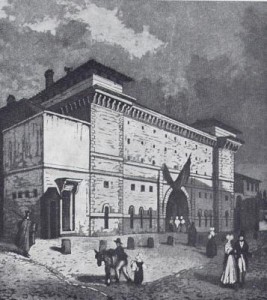 In his Right to Idleness, he reproduces a poem in praise of the water mill by Antipater of Thessalonica, who foresaw that its invention could relieve humans from the labour of grinding corn. He quotes Juvenal to attack hypocritical priests who live in the lap of luxury. But it is in his acerbic ‘Appendix’ that he urges his reader to ‘open the history of the ancient peoples and the writings of their philosophers and law givers.’ He cites Herodotus on the desire of people of all races to escape from unremitting manual toil. He uses Livy to argue that Tarquin the tyrant had forced free men to become artisans. He quotes Plato’s Republic to the effect that ‘Nature has made no shoemaker nor smith. Such occupations degrade the people who exercise them’. Xenophon, Cicero and Plutarch’s Lycurgus are adduced to show how humans are degraded and depoliticised by being compelled to sell their labour.
In his Right to Idleness, he reproduces a poem in praise of the water mill by Antipater of Thessalonica, who foresaw that its invention could relieve humans from the labour of grinding corn. He quotes Juvenal to attack hypocritical priests who live in the lap of luxury. But it is in his acerbic ‘Appendix’ that he urges his reader to ‘open the history of the ancient peoples and the writings of their philosophers and law givers.’ He cites Herodotus on the desire of people of all races to escape from unremitting manual toil. He uses Livy to argue that Tarquin the tyrant had forced free men to become artisans. He quotes Plato’s Republic to the effect that ‘Nature has made no shoemaker nor smith. Such occupations degrade the people who exercise them’. Xenophon, Cicero and Plutarch’s Lycurgus are adduced to show how humans are degraded and depoliticised by being compelled to sell their labour.
Lafargue believed that the machines invented in the industrial age offered liberation from labour. Mobile and obedient robots were the answer, of the kind which Homer’s Hephaestus had invented to serve him in the 18th book of the Iliad. This had been foreseen centuries earlier in Aristotle’s Politics: ‘if every tool could by itself execute its proper function, as the masterpieces of Daedalus moved themselves or as the tripods of Vulcan set themselves spontaneously at their sacred work; if for example the shuttles of the weavers did their own weaving, the foreman of the workshop would have no more need of helpers, nor the master of slaves.’
Larfargue concludes: ‘Aristotle’s dream is our reality. Our machines, with breath of fire, with limbs of unwearying steel, with fruitfulness, wonderful, inexhaustible, accomplish by themselves with docility their sacred labor. And nevertheless the genius of the great philosophers of capitalism remains dominated by the prejudice of the wage system, worst of slaveries. They do not yet understand that the machine is the saviour of humanity, the god who shall redeem man from the sordidae artes and from working for hire, the god who shall give him leisure and liberty.’

